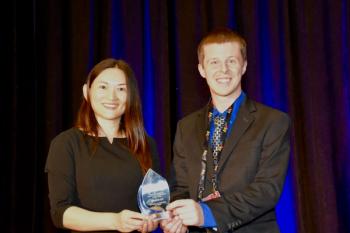
Coblentz Society Announces Recipient of 2009 Craver Award
The Coblentz Society announced that Professor Takeshi Hasegawa of Tokyo Institute of Technology (Tokyo, Japan) was selected as the recipient of the 2009 Craver Award in recognition of his creation of a novel spectroscopic technique for analyzing molecular orientation in a polymeric thin film deposited on a solid substrate, which can be carried out on a conventional FT-IR.
The Coblentz Society announced that Professor Takeshi Hasegawa of Tokyo Institute of Technology (Tokyo, Japan) was selected as the recipient of the 2009 Craver Award in recognition of his creation of a novel spectroscopic technique for analyzing molecular orientation in a polymeric thin film deposited on a solid substrate, which can be carried out on a conventional FT-IR. Dr. Hasegawa’s development of the technique of multiple-angle incidence resolution spectrometry (MAIRS) is one of the more important advances in surface chemistry in the last decade.
The Coblentz Society created the Craver Award in 2006 to recognize the efforts of young professional spectroscopists that have made significant contributions in applied analytical vibrational spectroscopy. The award was named for Clara D. Craver in recognition of her pioneering efforts in promoting the practice of infrared vibrational spectroscopy and her many years of service to the Coblentz Society.
The Craver Award will be presented at the 2009 FACSS Conference, to be held October 18–22, 2009, at the Marriott Hotel in Louisville, Kentucky.
Newsletter
Get essential updates on the latest spectroscopy technologies, regulatory standards, and best practices—subscribe today to Spectroscopy.




